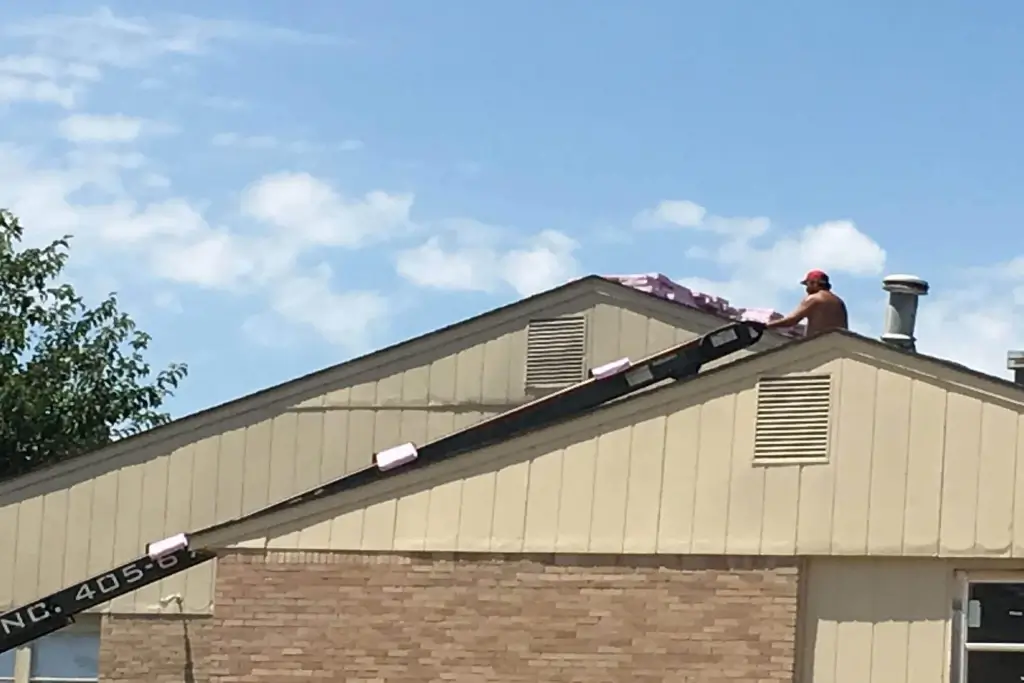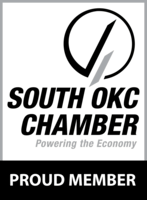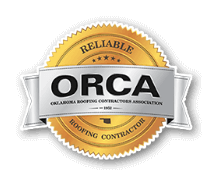Picking the right roof for your commercial property is an important step in ensuring the structure’s overall integrity and functionality. For example, choosing the ideal commercial roofing materials for your business property can protect you from intense weather and help you save on energy costs. And, of course, let’s not forget how the right commercial roofing systems can make your property appear more presentable and well-maintained to prospective clients.
Related Article: Questions to Ask a Roofing Contractor
Maupin Roofing and Construction has been in the residential and commercial roofing industry for 35 years, so you can rely on us to provide you with all the information that will help you land on the perfect roof for your business property.
We’ll go over the different types of commercial roofing systems, roofing choices for each type, commercial roofing materials, as well as the various factors you should consider before deciding on a roofing system.
Main Types of Commercial Roofing
Before you pick a roof, you should first know the options available to you. There are two main types of commercial roofing: flat roofs and sloped roofs. Each type has its unique benefits for commercial properties, so let’s take some time to discuss them:
Flat Roofs

Commercial flat roofing is simple, versatile, and cost-effective. They have a modern look to them and their simple design promises a simple installation process and maintenance. A flat roof also gives property owners additional space that they can use to further improve their commercial building, like installing HVAC units and solar panels or transforming it into accessible areas like a rooftop.
However, you should make sure that your flat roof has a proper drainage system to prevent water-related issues.
Low Slope Roofs and Steep Slope Roofs

You often see these types of roofing systems (especially a steep slope roof) being used on residential properties. Sloped roofs, including low slope roofs and steep slope roofs, are roofs installed at a specific angle to help with efficient water drainage, minimizing risks of water accumulation and damage. Similar to flat roofs, sloped roofs (especially low-slope roofs) can handle HVAC unit and solar panel installations. Of course, sloped roofs also offer a distinct aesthetic appeal that can be tailored to suit commercial properties.
Choices for Flat Roofs

As a popular commercial roof type, there’s a variety of options to choose from in the flat roofs category. Here are some of the flat roof types:
Built-Up Roofing (BUR) or Hot Tar Roofing
Built-up roofing systems are made up of multiple layers of asphalt or coal tar alternated with reinforcing fabric like fiberglass or polyester.
Pros: You’ll have a waterproof and fireproof built-up roofing membrane that’ll last you a good 20-30 years.
Cons: Due to the materials used, BUR is heavyweight, requires a more complicated and dangerous installation process, and is prone to absorbing heat.
Modified Bitumen Roofing
This roofing system is a composite material made from bitumen (asphalt), combined with rubber and plastic polymers. You can install a modified bitumen roof in many ways, including torch-applied, cold-applied, or self-adhered.
Pros: It requires minimal maintenance and can last 20-30 years. Additionally, it’s typically fireproof.
Cons: Compared to other commercial roofing types, it’s less flexible, prone to breakage and leaks, and vulnerable to UV radiation which can accelerate degradation. The installation process is also complex and requires the assistance of well-trained roofing professionals.
Single-Ply Roofing (TPO, PVC, EPDM)
Due to its durability, versatility, and easy installation, single-ply roofing systems are among the most popular roofing materials around.
Pros: It’s lightweight easy to install, energy-efficient, flexible, and creates watertight seams that can prevent leaks and moisture issues.
Cons: Single-ply roofing has higher initial material costs. The material is also prone to punctures and damage from foot traffic or sharp objects.
The most commonly used types of single-ply roofing membranes are as follows:
Thermoplastic Polyolefin (TPO): A mix of rubber and plastic polymers.
Polyvinyl Chloride (PVC): PVC roofing is made of durable synthetic plastic material.
Ethylene Propylene Diene Terpolymer (EPDM): An EPDM roofing membrane is made of synthetic rubber material.
Spray Polyurethane Foam (SPF) Roofing
Green Roofing
Green roofs (living roofs or vegetated roofs) are characterized by having a layer of plants and greeneries on the roof’s surface.
Pros: Green roofing systems lessen a commercial property’s energy consumption as it helps regulate temperature throughout the year. It’s environmentally sustainable, long-lasting, and adds a splash of green to your building’s aesthetic while improving air quality.
Cons: Due to the plants on the roof surface, green roofs require regular maintenance. Its weight may also pose risks to your roof’s integrity. Finally, it’s also prone to water leakage and moisture issues.
Choices for Sloped Roofs

Another common commercial roofing system is a sloped roof. Here are some of its popular types:
Metal Roofing
Metal roofs are a top choice for business property owners because of their longevity, low maintenance, and cost-effectiveness. They can contribute to lower cooling costs and they are one of the most flexible roof types out there.
Pros: With proper maintenance, metal roofing systems can last for 50 years. It is also weather-resistant and energy-efficient due to its ability to reflect sunlight.
Cons: Metal roofing can be noisy, especially when it’s pelted by rain. The materials of metal roofs are also prone to expansion and contraction over time, as well as denting from heavy objects.
Asphalt Shingles
Asphalt shingles are traditional roofing materials commonly used for both residential roofs and commercial roofs. Commercial buildings often use upgraded shingles or designer shingles.
Pros: This roof system offers wind protection, durability against weather conditions, and easy installation.
Cons: This is one of the roof systems that don’t typically last long as they’re susceptible to cracking or falling off.
Clay or Concrete Tile Roofing
Tile roofing can be suitable for some commercial property owners due to its durability and appearance. Unlike a metal roof, clay or concrete tile roofing gives a more traditional look to your commercial roof.
Pros: This commercial roofing system offers versatility and can be customized to your taste. It’s also fire-resistant, energy efficient, and requires minimal maintenance.
Cons: The roofing material used is heavyweight and leads to damage to the roof’s structure. While durable, it’s still prone to damage.
Things to Consider When Choosing Commercial Roofing Materials

Choosing between commercial roof types can be time-consuming, so let’s go over some of the factors you should consider to help narrow down your roofing material choices:
Durability

We can’t overstate this enough: Investing in durable roofing materials like metal roofs or concrete roofs for your commercial buildings is one of the best business decisions you’ll ever make. You’ll want to pick a roof that can withstand natural forces all year long.
Energy Efficiency
For your commercial roofing project, consider options that will help minimize heating and cooling costs. This is a great investment because not only will it lessen energy consumption, but it will also make the place comfortable for your customers or clients.
Architectural Design

While it’s essential to choose the right commercial roofing material, the visual appeal of your roof also matters. After all, with an eye-catching establishment that perfectly represents your business, you can attract more customers.
Costs

Consider whether the associated costs of your chosen commercial roof system align with your budget. While most building owners prefer to have the best commercial roofing material for their property, it’s essential to choose one that fits your budget without compromising quality.
Environmental Factors

Finally, think about the weather patterns in your area. Should you pick commercial roofs that can handle snow, or will your roof primarily deal with heat and sunlight? Review the different types of commercial roofing and pick one that will help protect your commercial buildings from prominent environmental factors in your city.
Maupin Roofing: Your Trusted Partner for Your Commercial Roof Needs

Whether you need a roof replacement or a home remodeling, we’re ready to offer years of expertise to solve your problems—no matter how big or small! Contact us at 405-703-3843 and join thousands of Oklahoma property owners on the path to superior home and roof solutions!

Solar Roofs for Residential Properties: Harnessing Modern Energy
In the past decade or so, solar roofs for residential properties have become popular. Maupin Roofing stays up to date with all things roofing, and
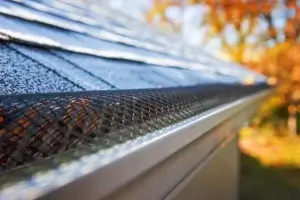
Gutters and Downspouts Prevent Ice Dams and Roof Leaks
Winter in Oklahoma can throw just about everything at your roof—freezing rain, heavy snow, and those sneaky ice dams that creep up when you least
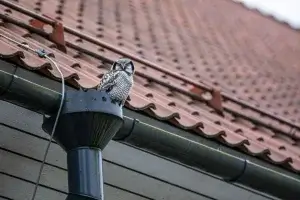
Downspout Placement and Roof Drainage: Top 15 Best Practices
How important is downspout placement and roof drainage in preventing water damage? At Maupin Roofing, we like to say: it’s not just about keeping water
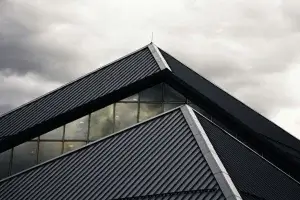
Top 10 Commercial Metal Roofing Benefits in Oklahoma City
With modern designs, better coatings, and smarter installation techniques, metal roofs have become a top option for businesses. Maupin Roofing shares the top 10 commercial

Metal Roofs for Homes: Top Choices for Oklahoma City
Considering an upgrade and wondering about metal roofs for homes? Maupin Roofing is here to discuss everything you need to know—from the different types of

How to Spot Roof Damage After a Storm: A Quick Guide
Need tips on how to spot roof damage after a storm? Maupin Roofing has the answers! Below, we’ve put together an after-storm roof inspection checklist

